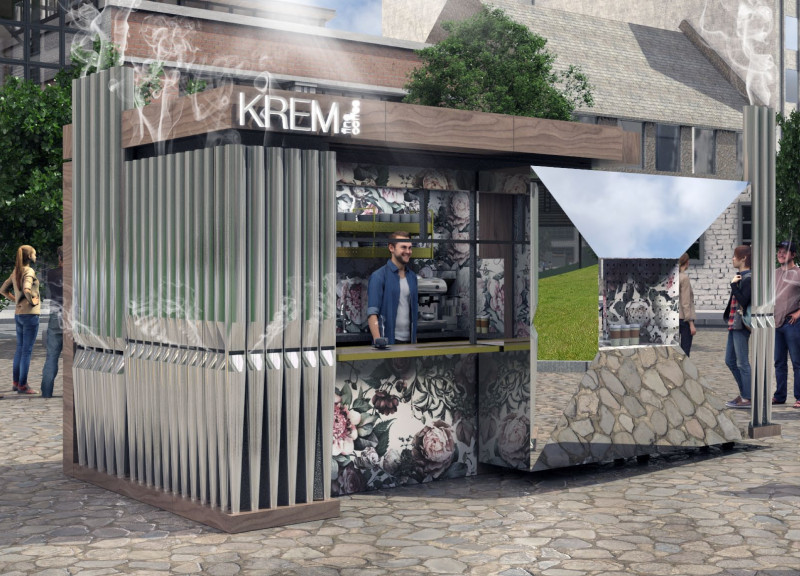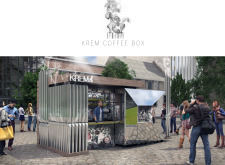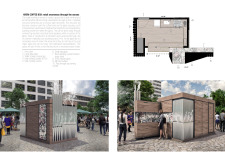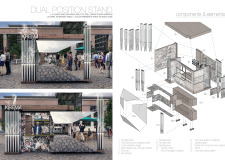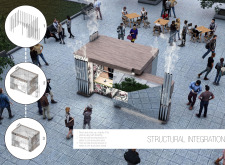5 key facts about this project
The KREM Coffee Box serves as a vibrant space designed for coffee lovers. Located in urban environments, it aims to create an engaging place where customers can experience their favorite drinks in a unique setting. The design concept focuses on simplicity and practicality while incorporating innovative elements that enhance the overall interaction between the space and its visitors.
Innovative Sensory Elements
At the core of the design are pipes that add an auditory and visual dimension. These pipes play soft tones when purchases are made, providing a pleasant sound that interacts with the atmosphere. They also produce smoke to signal when the coffee box is open, creating a lively presence that draws in passersby. This sensory engagement invites customers to explore the space further.
Functional Layout
Inside, the layout is carefully organized to facilitate service and customer interaction. The main serving counter is the centerpiece, allowing baristas to efficiently serve coffee while engaging with patrons. Adjacent to it are areas for water storage and preparation, ensuring that everything needed is within reach. A dual position stand adds versatility to the space, enabling it to switch from a closed position to an open table. This flexibility enhances the dining experience, catering to different customer needs.
Material Utilization
The construction is straightforward, using plywood and 2x4's to create a strong yet simple framework. These materials make it easy to build and dismantle the structure, allowing for mobility and adaptability in various locations. This practical approach keeps the focus on function while ensuring that the design remains approachable and user-friendly.
Spatial Dynamics
Mirrored surfaces reflect light and create a sense of openness in the coffee box, enhancing its inviting nature. By incorporating this reflective element, the space feels larger and more welcoming, encouraging customers to linger and enjoy their surroundings. This thoughtful detail enriches the experience, making it more than just a stop for coffee. It becomes a space for social interaction and enjoyment, emphasizing the importance of the environment in the overall coffee experience.


